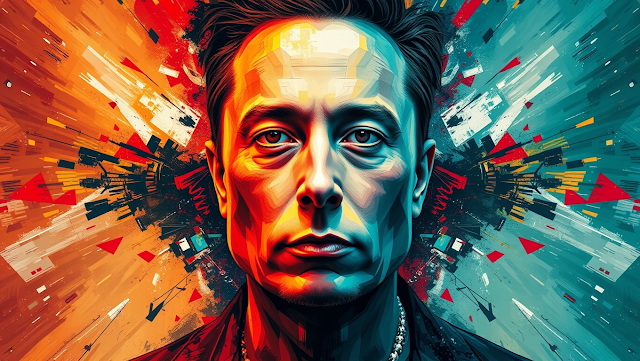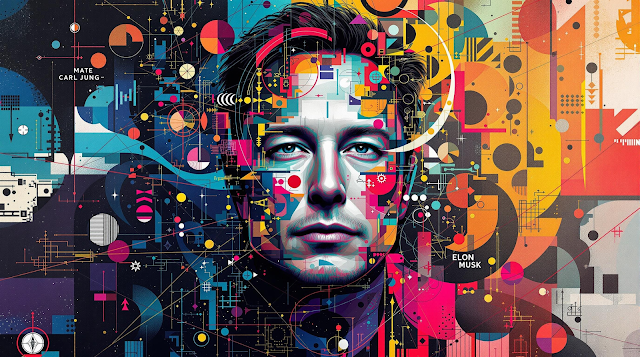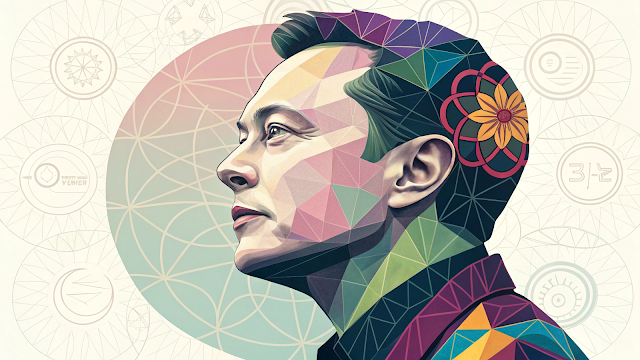"If something's important enough, you should try. Even if the probable outcome is failure." - Elon Musk.
"무언가가 충분히 중요하다면, 시도해봐야 합니다. 실패할 가능성이 높더라도 말입니다." - 일론 머스크
"If something's important enough, you should try. Even if the probable outcome is failure." This powerful statement by Elon Musk encapsulates a core philosophy that has driven some of humanity's greatest achievements. Musk, known for his ambitious ventures like SpaceX, Tesla, and Neuralink, embodies this principle through his willingness to pursue seemingly impossible goals despite significant risks of failure.
"무언가가 충분히 중요하다면, 당신은 시도해야 합니다. 실패할 가능성이 높더라도 말입니다." 일론 머스크의 이 강력한 발언은 인류의 가장 위대한 업적들을 이끌어온 핵심 철학을 담고 있습니다. 스페이스X, 테슬라, 뉴럴링크와 같은 야심찬 벤처로 알려진 머스크는 실패의 상당한 위험에도 불구하고 겉보기에 불가능한 목표를 추구하는 의지를 통해 이 원칙을 구현합니다.
The Value of Important Pursuits
What makes something "important enough" to warrant the risk of failure? Importance can be measured in various dimensions: potential impact on humanity, personal passion, solving critical problems, or advancing human knowledge and capabilities. Musk's ventures target areas he considers existentially important—sustainable energy, making life multi-planetary, and enhancing human cognition. The key insight is that truly important goals often carry inherent risk precisely because they push boundaries and challenge the status quo.
무엇이 실패의 위험을 감수할 만큼 "충분히 중요한" 것으로 만드나요? 중요성은 다양한 차원에서 측정될 수 있습니다: 인류에 대한 잠재적 영향, 개인적 열정, 중요한 문제 해결, 또는 인간의 지식과 능력 향상. 머스크의 벤처는 그가 실존적으로 중요하다고 여기는 영역—지속 가능한 에너지, 생명을 다행성적으로 만들기, 인간 인지 향상—을 목표로 합니다. 핵심 통찰은 진정으로 중요한 목표들이 종종 경계를 밀어내고 현상을 도전하기 때문에 본질적인 위험을 수반한다는 것입니다.
The Courage to Face Probable Failure
The second part of Musk's quote is perhaps the most challenging: embracing the possibility—even probability—of failure. This requires a fundamental shift in how we view failure itself. Rather than seeing failure as a final judgment on our abilities or the validity of our goals, this philosophy reframes failure as a natural, expected component of ambitious pursuits. It suggests that certain endeavors are so worthwhile that they merit attempt despite unfavorable odds.
머스크 인용문의 두 번째 부분은 아마도 가장 도전적일 것입니다: 실패의 가능성—심지어 확률—을 받아들이는 것. 이는 우리가 실패 자체를 바라보는 방식에 근본적인 변화를 요구합니다. 실패를 우리의 능력이나 목표의 타당성에 대한 최종 판단으로 보는 대신, 이 철학은 실패를 야심찬 추구의 자연스럽고 예상되는 구성요소로 재구성합니다. 이는 특정 노력들이 불리한 확률에도 불구하고 시도할 가치가 있을 만큼 가치 있다는 것을 시사합니다.
Learning Through Attempts
Trying despite probable failure creates value beyond the immediate outcome. Each attempt generates knowledge, refines approaches, builds capabilities, and sometimes reveals unexpected opportunities. Musk's SpaceX experienced multiple rocket failures before achieving successful landings. These failures weren't just setbacks—they were essential learning experiences that contributed to eventual success. The attempt itself becomes valuable, regardless of outcome, because it advances understanding and capability.
가능성 높은 실패에도 불구하고 시도하는 것은 즉각적인 결과를 넘어서는 가치를 창출합니다. 각 시도는 지식을 생성하고, 접근 방식을 개선하며, 능력을 구축하고, 때로는 예상치 못한 기회를 드러냅니다. 머스크의 스페이스X는 성공적인 착륙을 이루기 전에 여러 번의 로켓 실패를 경험했습니다. 이러한 실패들은 단순한 좌절이 아니라—결국 성공에 기여한 필수적인 학습 경험이었습니다. 시도 자체가 결과에 관계없이 가치 있게 되는데, 이는 이해와 능력을 발전시키기 때문입니다.
Redefining Success and Failure
Musk's philosophy invites us to reconsider how we define success and failure. Traditional definitions often focus narrowly on immediate outcomes. A more nuanced view recognizes that progress often follows a non-linear path with many apparent failures along the way. Tesla nearly went bankrupt multiple times before becoming successful. Had Musk abandoned the venture at the first signs of failure, the electric vehicle revolution might have been significantly delayed. Success sometimes requires persisting through a series of failures.
머스크의 철학은 우리가 성공과 실패를 어떻게 정의하는지 재고하도록 초대합니다. 전통적인 정의는 종종 즉각적인 결과에 좁게 초점을 맞춥니다. 더 미묘한 관점은 진보가 종종 도중에 많은 명백한 실패와 함께 비선형적 경로를 따른다는 것을 인식합니다. 테슬라는 성공하기 전에 여러 번 파산 직전까지 갔습니다. 머스크가 실패의 첫 징후에서 벤처를 포기했다면, 전기 자동차 혁명은 상당히 지연되었을 수 있습니다. 성공은 때때로 일련의 실패를 통해 지속하는 것을 요구합니다.
Practical Application in Everyday Life
This philosophy isn't just for billionaire entrepreneurs—it applies to personal goals, professional projects, and societal challenges. When considering whether to pursue something difficult, we can ask: "Is this important enough that I should try despite the risk of failure?" This framing helps distinguish between fears worth overcoming and genuine signals that a different approach is needed. It encourages calculated risk-taking aligned with meaningful values rather than avoiding all potential failure.
이 철학은 억만장자 기업가들만을 위한 것이 아닙니다—그것은 개인적 목표, 전문적 프로젝트, 그리고 사회적 도전에 적용됩니다. 어려운 것을 추구할지 고려할 때, 우리는 물을 수 있습니다: "이것이 실패 위험에도 불구하고 내가 시도해야 할 만큼 충분히 중요한가?" 이 프레임은 극복할 가치가 있는 두려움과 다른 접근이 필요하다는 진정한 신호를 구별하는 데 도움이 됩니다. 이는 모든 잠재적 실패를 피하기보다는 의미 있는 가치와 일치하는 계산된 위험 감수를 장려합니다.
Balancing Optimism with Realism
Musk's approach balances optimism with realism. It's not about blind optimism that ignores probabilities, but rather clear-eyed assessment that acknowledges risks while still choosing to proceed when the potential value justifies it. This balance requires honest evaluation of challenges without allowing that evaluation to become paralyzing. As Musk has demonstrated in his businesses, you can simultaneously believe something is likely to fail and still commit fully to making it succeed.
머스크의 접근법은 낙관주의와 현실주의의 균형을 이룹니다. 이는 확률을 무시하는 맹목적인 낙관주의가 아니라, 잠재적 가치가 정당화될 때 여전히 진행하기로 선택하면서도 위험을 인정하는 명확한 평가입니다. 이 균형은 그 평가가 마비되지 않게 하면서도 도전에 대한 정직한 평가를 요구합니다. 머스크가 그의 사업에서 보여주었듯이, 당신은 동시에 무언가가 실패할 가능성이 높다고 믿으면서도 그것이 성공하도록 완전히 헌신할 수 있습니다.
Conclusion: The Legacy of Trying
Ultimately, Musk's philosophy speaks to how we want to live and what legacy we wish to leave. Do we want to be defined by the safe paths we took, or by the important challenges we were willing to tackle? History remembers those who attempted great things, even when they failed. The Wright brothers crashed numerous times before achieving flight. Marie Curie endured countless failed experiments. What united these pioneers wasn't guaranteed success, but the conviction that their pursuits were important enough to warrant the attempt. In embracing this mindset, we open ourselves to extraordinary possibilities that remain forever closed to those unwilling to risk failure.
궁극적으로, 머스크의 철학은 우리가 어떻게 살고 싶은지와 어떤 유산을 남기고 싶은지에 대해 이야기합니다. 우리는 우리가 택한 안전한 길로 정의되길 원하나요, 아니면 우리가 기꺼이 도전하고자 했던 중요한 도전들로 정의되길 원하나요? 역사는 그들이 실패했을 때조차도 위대한 일을 시도했던 사람들을 기억합니다. 라이트 형제는 비행을 성취하기 전에 수많은 충돌을 겪었습니다. 마리 퀴리는 수많은 실패한 실험을 견뎠습니다. 이 선구자들을 하나로 묶은 것은 보장된 성공이 아니라, 그들의 추구가 시도할 만큼 충분히 중요하다는 확신이었습니다. 이 마음가짐을 받아들임으로써, 우리는 실패를 감수하지 않으려는 사람들에게는 영원히 닫혀 있는 특별한 가능성에 우리 자신을 열게 됩니다.









